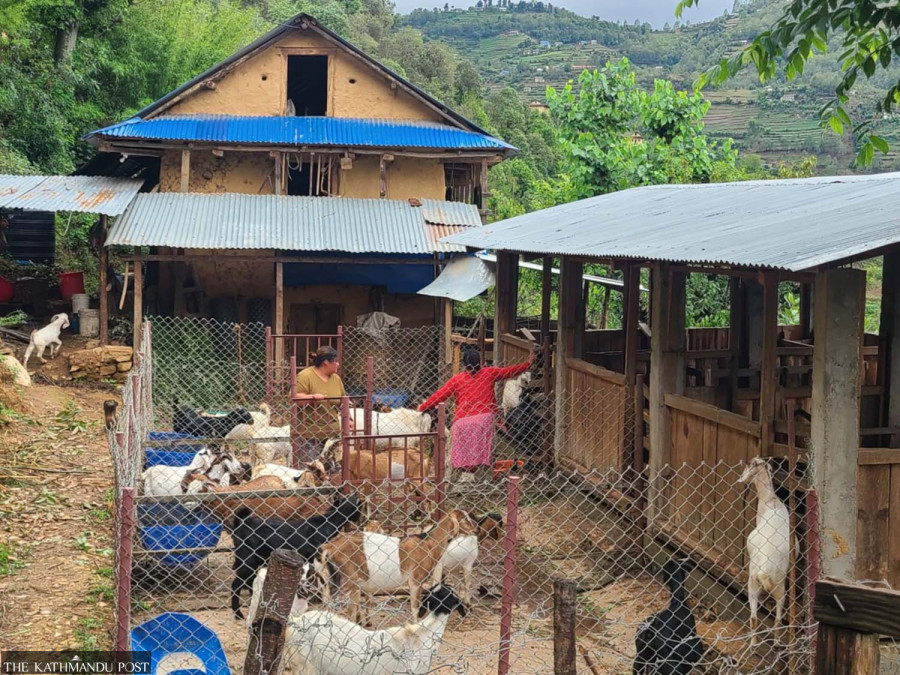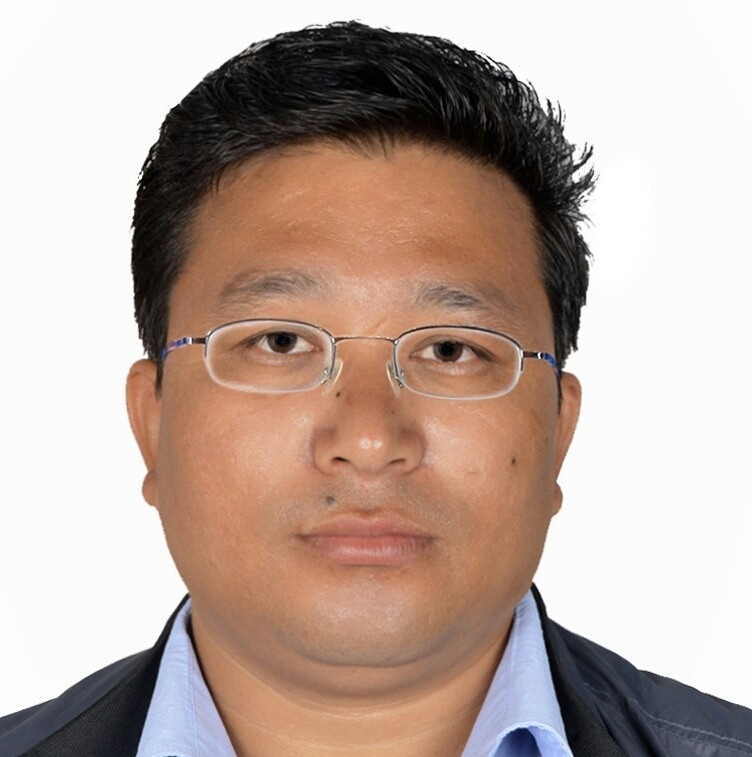Money
Goat rearing is the go-to business for Rolpa residents
Korchabang village has 59 households, most of them prospering with income from goat farms.
Kashiram Dangi
Goat rearing has attracted farmers in Rolpa, a hill district in Nepal’s midwest.
There are 59 households in Korchabang where most families have started commercial goat rearing.
Lush forests, plants and trees and a good source of water make commercial goat rearing feasible in Rolpa, the heartland of the decade-long Maoist war that ended in 2006.
In recent years, farmers have started growing different varieties of grasses in the villages too.
Jokh Bahadur Gharti Magar, a farmer from Minahi, Korchabang, who is popular in the village for rearing many goats, said he is not worried about wild grass as he himself grows the varieties rich in nutrients on his farmland. He can also source fodder from the nearby forest.
Magar, who runs a hotel in Minahi, is supported by his family for commercial goat keeping.
“I started with a small investment. Later, my family helped me with more funds to increase the number of goats,” said Magar.
The veterinary hospital in the district and the animal husbandry centre have also helped Magar and other farmers in their enterprise.
The Smart Krishi Gaun programme run by the government for the past three years recognises Magar is one of the successful entrepreneurs.
Magar is among high earners from goat rearing in Korchabang. As grass production is good in the area, farmers find the business highly profitable, said Bhim Prakash Pun, president of a farmers’ group.
The government, through the veterinary hospital in Rolpa and the Livestock Service Centre, has implemented animal rearing programmes in the region. The Smart Krishi Gaun Programme Implementation Committee looks after agricultural affairs.
Kaman Buda, a local politician, said rearing goats by building modern sheds is becoming more profitable.
The farmers are rearing goats in better ways and have an income even in the rainy season. It is improving the economic situation, said Prasash Pun Magar, chairman of the Madi rural municipality ward 6. Among 59 farmers rearing goats, the annual incomes of 15 are good.
Bhim Prakash Pun, who was in politics before taking up goat rearing, presides over the farmers’ group. He leads the Korchabang Smart Krishi Gaun Programme Implementation Committee.
“Commercial goat rearing has become a major source of our income,” Pun said. The implementation of the Smart Krishi Programme and learning about modern ways of raising goats encouraged villagers to start the business. “So I started spending less time in politics and more in business.”
The goat rearing initiative under the Smart Krishi Programme started in 2020. Farmers have been trained to cultivate grasses and manage sheds in modern ways.
Pun has 20–25 goats, after selling 15 he-goats and 15 kids at once. The money goes to the education of children and household expenses.
Around 15 to 20 households in Korchabang have started goat rearing as a major business.
Technicians taught the farmers to build modern sheds. They also learnt grass cultivation and feed preparation, said Dr Shankar Neupane, chief of Veterinary and Animal Service Expert Centre. Training on financial transactions was also imparted.
To make the 59 farmers entrepreneurs, the government has spent around Rs10.5 million, Neupane said.
Jokh Bahadur Gharti Magar, a local farmer, said that the financial and technical support from the government was a big help for them.
“From the hotel business, I came back to agriculture and livestock rearing,” Magar said. “After much thought, I took up goat farming by making a modern shed.”
Gharti Magar, a former weightlifter, is happy as a farmer. He has 28 goats in the shed and has requested the provincial and federal governments to introduce additional programmes and provide another technician.
Subha Bahadur Budhamagar, who also took to commercial goat rearing after a long teaching career, earns well.
The government is doing proper inspection, said Matilal Kunwar, officer at Veterinary Hospital and Livestock Service Expert Center.
Tirtha Raj Pun and Kaman Budha are rearing goats in Punthok and Jyang villages, respectively. Pun started with four goats and now has 10.
Kaman Budha, who is also a trader, served villagers as a social worker. He rears 10–15 goats and takes them to Dang to sell.




 17.12°C Kathmandu
17.12°C Kathmandu














